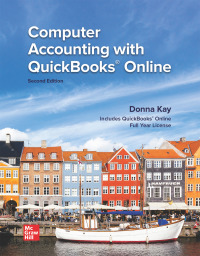Question
review the Asia Pulp and Paper Group (APP) case and address the following: 1. Choose one (1) among of the following three (3) issues threatening
review the Asia Pulp and Paper Group (APP) case and address the following:
1. Choose one (1) among of the following three (3) issues threatening the operations and survival of APP - debt crisis and declining financial performance; unsustainable supply and illegal logging; or poor investor and creditor relations. Using an Ishikawa Fishbone Diagram, identify all the possible factors that lead to the selected issue above.
2.The attached news articles are additional exhibits for the case. Using Mendelow's stakeholder analysis tool,
i) evaluate how the relative power and interests of the following four (4) stakeholder groups have changed after the events leading to the publication of these articles. Shareholders; Employees; Lenders; Environmental Groups (as representatives of Society and Natural Resources)
ii) Suggest an appropriate engagement strategy for these four (4) stakeholders.
News Article 1:
The Straits Times (Singapore) Published: APR 28, 2015, 7:39 AM SGT Link: https://www.straitstimes.com/business/worst-asian-default-forgiven-as-indonesia-billionaire-sells-debt
Headline: Worst Asian default forgiven as Indonesia billionaire sells debt
SINGAPORE (Bloomberg) - Foreign investors have either forgiven or forgotten the events that involved the billionaire Widjaja family in Asia's worst corporate default. Companies backed by 91-year-old Eka Tjipta Widjaja, Indonesia's fourth-richest person, received orders twice the size of two bond issues last week at yields below the average of Asian junk-rated peers. Developer PT Bumi Serpong Damai raised US$225 million from a debut sale of U.S. dollar notes. Golden Agri-Resources Ltd., the world's second-largest palm-oil producer, issued $125 million in its third sale in a year. The family is also preparing a bid for an Indonesian coal producer in the midst of a dollar-debt restructuring.
Fourteen years after Widjaja's sprawling Sinarmas empire was pummeled by a US$14 billion default by its Asia Pulp & Paper business, investors are showing faith in its credit. The combined market value of 12 family-controlled companies listed on the Singapore and Jakarta exchanges has held steady at about US$15 billion over the past year. Moody's Investors Service this month rated Bumi Serpong at Ba3, the third-highest junk grade, citing the developer's healthy finances.
"There's always going to be new investors keen to try their luck with the group even after the Asia Pulp & Paper debacle," said Charles Macgregor, head of Asia high-yield research in Singapore at Lucror Analytics. "They will probably come back every now and then to reestablish their position in the debt market through some of their better businesses."
Asia Pulp & Paper halted payments on a total US$13.9 billion of bonds, loans and trade payables in 2001, after a 20 per cent plunge in global paper prices over three months. That included about US$6.7 billion of dollar notes, the biggest missed bond obligation by an Asian company to date, data compiled by Bloomberg show. The firm became mired in legal challenges as Indonesian courts canceled debts and creditors lost millions.
Founded in 1972, the pulp and paper business controlled by the Sinarmas Group embarked on a global fundraising drive that included a 1995 U.S. share sale. Its failure came in the wake of the Asian debt crisis, when companies across the region defaulted on billions of dollars of liabilities and Indonesia was one of three countries forced to seek an International Monetary Fund bailout.
"All the corporate groups in Indonesia were suffering, especially during the 1998 Asian crisis, and Asia Pulp & Paper had tried to continue to service its debt right until we really had to give up in 2001 because of the deteriorating macro situation in the country," Gandi Sulistiyanto, Sinarmas's managing director in Jakarta, said by phone Monday. "Our group is responsible with its debt despite the bad, difficult past."
The Widjajas aren't alone in debt comebacks. Other Indonesian companies have had financial troubles and successfully returned to the dollar bond market. PT Gajah Tunggal Tbk, the nation's biggest tire-maker, issued $500 million of five-year notes in 2013, four years after a distressed bond exchange. Developer PT Pakuwon Jati restructured global notes in 2005 and went on to raise $200 million last year.
The Widjaja family trust owns 65.6 per cent of Sinarmas Land Ltd., which in turns owns 51.5 per cent of Bumi Serpong, the developer of a planned community in the greater Jakarta area, according to the companies' latest annual reports. The trust owns 49.95 per cent of Golden Agri.
"The controlling shareholders and family's willingness to serve debts is extremely important for emerging-markets investors," said Mark Yu, a money manager and analyst at Atlanta-based Invesco Advisers Inc., which oversees $798 billion in assets. "Improvement in corporate governance and transparency definitely helps rebuild a track record. But regaining confidence from capital markets takes time and efforts to materialize."
The nation's companies have defaulted on US$2.3 billion of U.S. dollar bonds since 2008, the most among regional corporates, according to Bloomberg data.
Berau Bid Sinarmas is also committing as much as US$300 million to a takeover bid for London-listed Asia Resource Minerals, which owns 85 per cent of Indonesia's fifth-largest coal miner PT Berau Coal Energy. If successful, the group may inject the Berau assets into its Singapore-listed Golden Energy & Resources Ltd. unit, according to an April 15 exchange filing.
The turnaround in Widjaja's fortunes is splitting money managers who often reference the group's history as a cautionary tale in emerging-market investing after the noteholder losses following Asia Pulp's default.
"History repeats and provides lessons - even in finance," Hal Hirsch, a managing director at New York-based Alvarez & Marsal Inc., which specializes in debt recoveries.
Step by Step Solution
There are 3 Steps involved in it
Step: 1

Get Instant Access to Expert-Tailored Solutions
See step-by-step solutions with expert insights and AI powered tools for academic success
Step: 2

Step: 3

Ace Your Homework with AI
Get the answers you need in no time with our AI-driven, step-by-step assistance
Get Started


